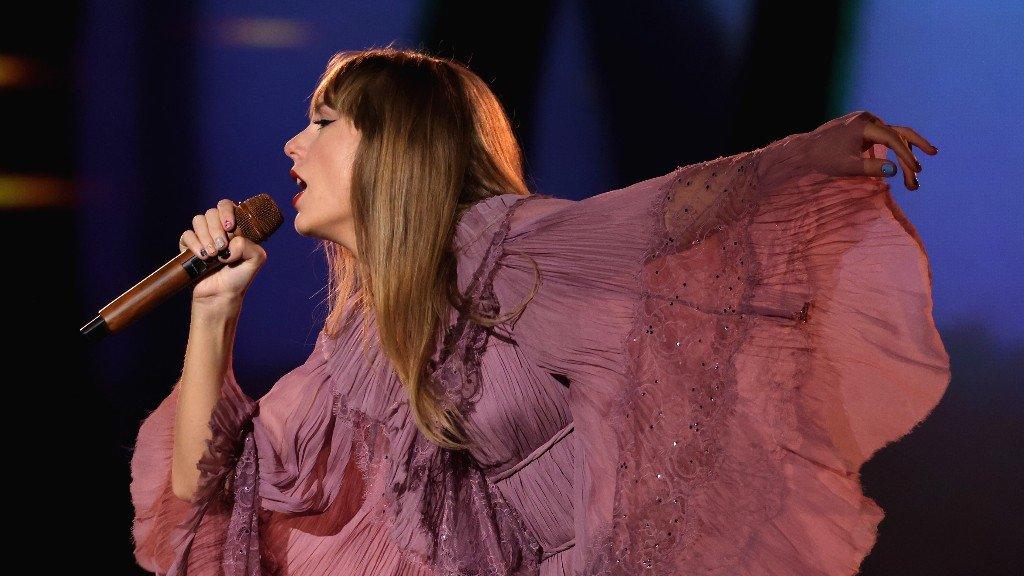Music industry makes $26bn but wants streaming prices to rise
- Published
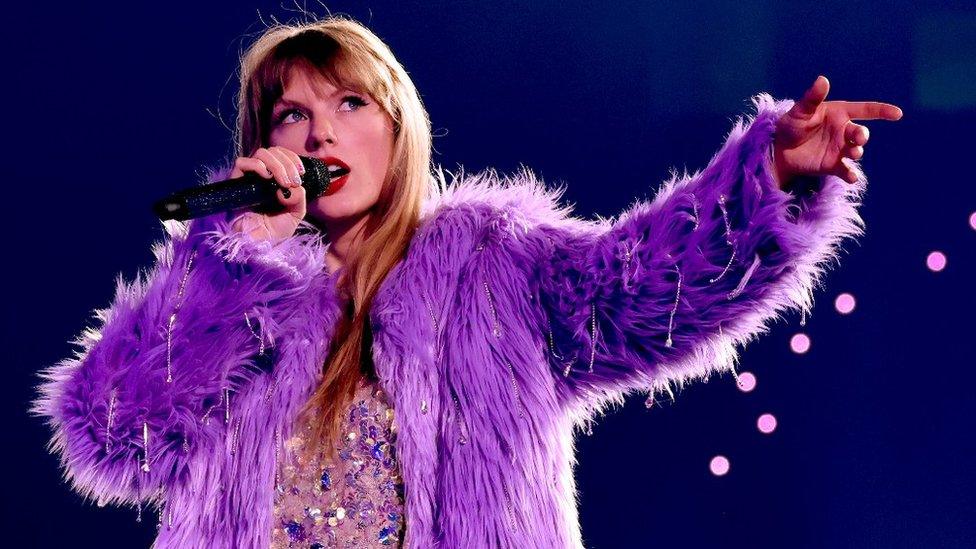
Taylor Swift was the biggest-selling artist in the world last year
The success of artists like Taylor Swift and BTS helped global music revenues rise to $26.6bn (£21.7bn) last year, the highest level since records began in the 1990s.
The growth was largely driven by streaming, which now accounts for 67% of the industry's earnings.
Last year, 589 million people paid for a subscription, said trade body the IFPI, up from 523 million in 2021.
But labels say income could be higher, and are pushing for prices to rise.
"It would help if music subscription pricing could reflect the realities of inflation," said Simon Robson, president of international markets for Warner Music.
The UK's largest streaming service, Spotify, hasn't increased its prices since launching in 2009, with an individual subscription set at £9.99. Most of its competitors maintain a similar pricing structure.
Warner Music CEO Robert Kyncl recently suggested that the US rate should rise to $13.25 (£10.83), based on the 2011 US launch price of $9.99, adjusted for inflation.
"Music is undervalued, and this is not my opinion - there are actually numbers to back it up," he told Music Week, external:
"If you take the US, the price that the user pays per hour of consumption of music is half of what they pay for movies and TV shows on streaming services. So right there, it's 50% undervalued today."
Asked whether labels were actively pursuing price rises, Universal Music executive Adam Granite said it "wouldn't be appropriate to discuss any of our commercial partnerships specifically".
In the meantime, labels are seeking to "monetise other forms of music consumption" by licensing songs to video games like Fortnite and Roblox, and fitness companies like Peloton.
Live music back to pre-pandemic levels
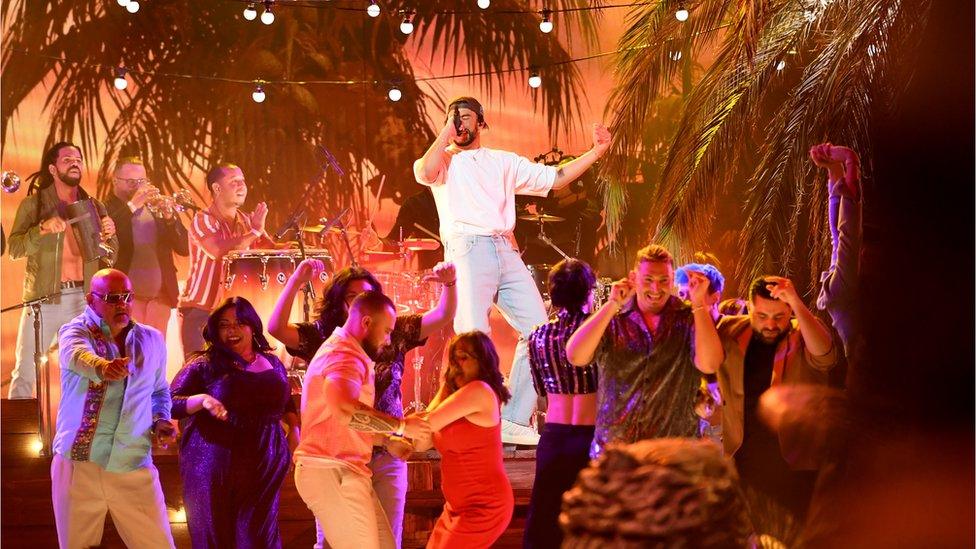
Bad Bunny had the highest-grossing tour of 2022
Their comments came as the IFPI announced that the global music industry was enjoying its eighth consecutive year of growth.
As well as the increase in streaming, sales of physical formats rose by 4%, generating $4.6bn (£3.7bn) in revenues.
Almost half of that figure (49.8%) came from Asia, where the "idol" culture of Japan and South Korea encourages fans to buy CDs and vinyl as keepsakes.
Performance royalties also rose by 8.6% to $2.5bn (£2.04bn), surpassing pre-pandemic levels after two years of turmoil for the live music industry.
The independent sector also played a "key role in the growth" and now accounts for 35% of revenues, said Silvia Montello, of the Association of Independent Music.
The US remained the world's largest music market, with revenues exceeding $10bn for the first time. Japan came second and the UK in third place.
China rose to become the fifth largest market, replacing France, after revenues there rose by 28.4%.
The turnaround is particularly encouraging, said Mr Granite, because "10 years ago [China] was almost entirely lost to piracy".
Taylor Swift tops the charts
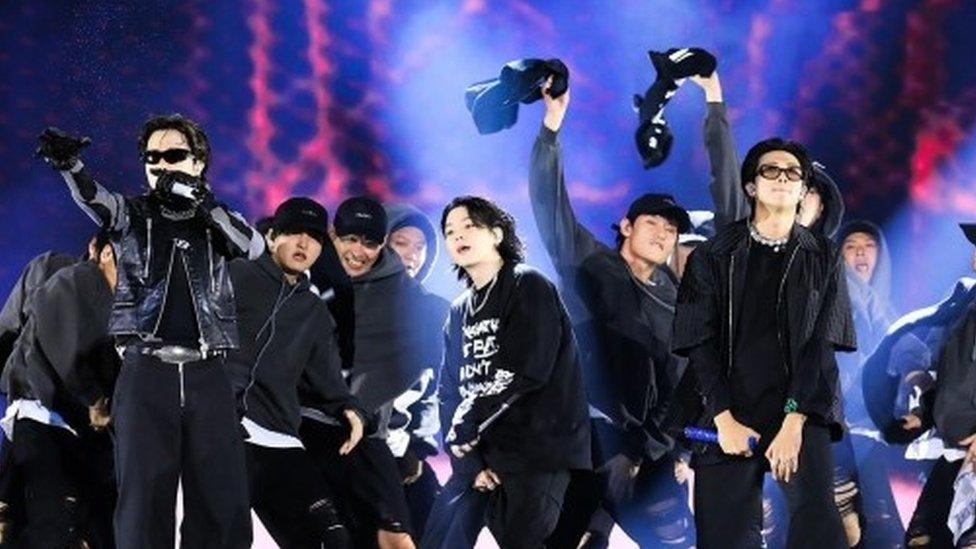
BTS were the biggest band in the world, and the second most-popular act overall
The IFPI report highlighted the increasingly global nature of music consumption, with seven countries represented in last year's top 10 artists.
Taylor Swift was the biggest seller of 2022, thanks to the success of her 10th album, Midnights, and the ongoing popularity of her back catalogue.
It's the third time Swift has topped the annual worldwide chart since its inception 10 years ago, having previously been number one in 2014 and 2019.
She usurped the 2021 winners, South Korean pop group BTS, who took the runners-up position this time. Two other K-pop bands made the top 10 - with Seventeen and Stray Kids in sixth and seventh places respectively.

Harry Styles had the biggest-selling song of the year, with his Grammy and Brit-Award winning hit As It Was.
UK artists were responsible for another seven of the top 20 songs, with Glass Animals' sleeper hit Heat Waves at number two; Elton John and Dua Lipa's collaboration Cold Heart at four; and further tracks from Ed Sheeran, Adele and Dua Lipa making the chart.
Kate Bush's 1985 hit Running Up That Hill (A Deal With God) ended the year as the 16th most successful song, thanks to its use in sci-fi show Stranger Things.
Puerto Rican star Bad Bunny claimed the number one album around the world with Un Verano Sin Ti, the first Spanish-language album to top that chart.
Swift's Midnights came second, with Styles' Harry's House at three.
The TikTok dilemma
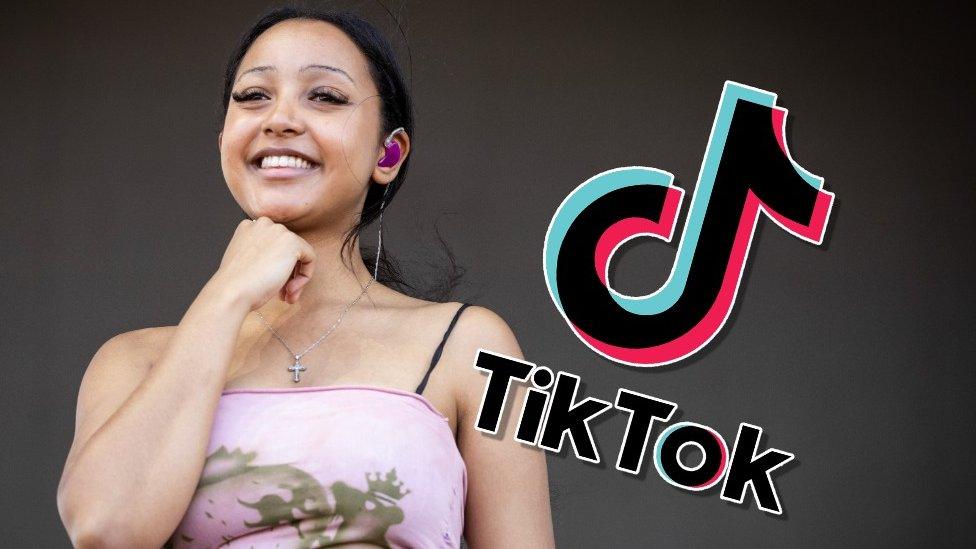
British star PinkPantheress is among the artists who owe their success to TikTok
Over the last few years, the music industry has effectively reorganised itself around TikTok's algorithm, signing artists who go viral on the platform, whether they're singing Sea Shanties like Nathan Evans, or making credible, cutting edge pop like PinkPantheress.
But the app is under attack, with countries including Canada, New Zealand, the UK and Belgium banning its use on government-issued devices.
In the US, the Biden administration has threatened to ban TikTok altogether, external, unless its Chinese owners agree to sell their stake in the app.
The fear is that data harvested by the platform could be shared with the Chinese government. TikTok says the bans are based on "fundamental misconceptions".
The executives presenting the IFPI's annual report said they weren't concerned about a potential ban.
"I think we have to remember that the person who listens to a tiny little excerpt of a song on TiKTok is not the same person who listens to a full track [on Spotify]," said the organisation's chief executive, Frances Moore.
"So, TiKTok is an additional channel for discovering music, but I don't think restricting it is going to have that huge an impact."
Simon Robson of Warner Music also downplayed the app's significance.
"Certainly there have been a number of artists who came from TikTok," he acknowledged, "but you have to understand that what we're looking for is quality artists who are going to have the potential to break out overseas. And for that, you need something really special.
"So although TikTok can highlight a potential artist, we really want to see them play live, because that really highlights if they've got the talent."

Follow us on Facebook, external or on Twitter @BBCNewsEnts, external. If you have a story suggestion email entertainment.news@bbc.co.uk, external.
Related topics
- Published4 January 2023
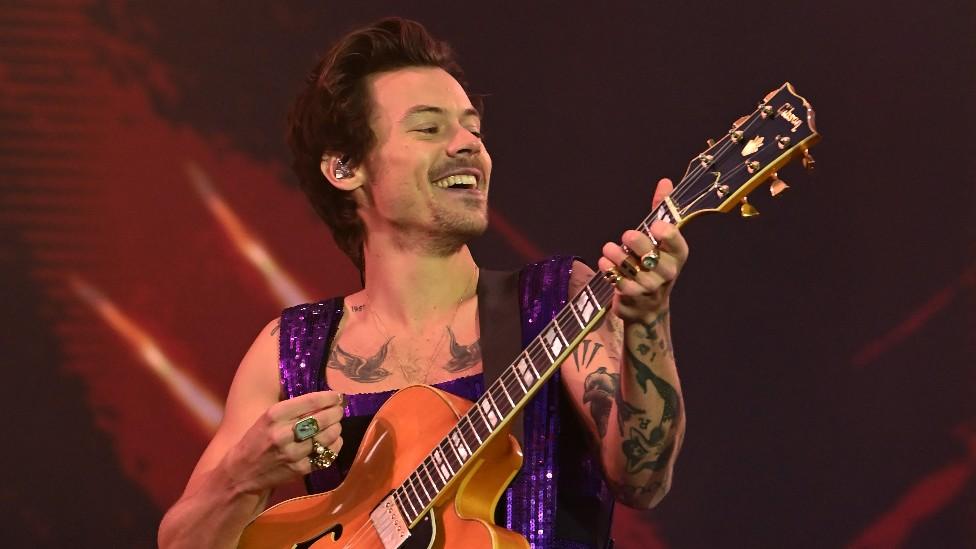
- Published13 March 2023

- Published31 December 2022

- Published18 March 2023
